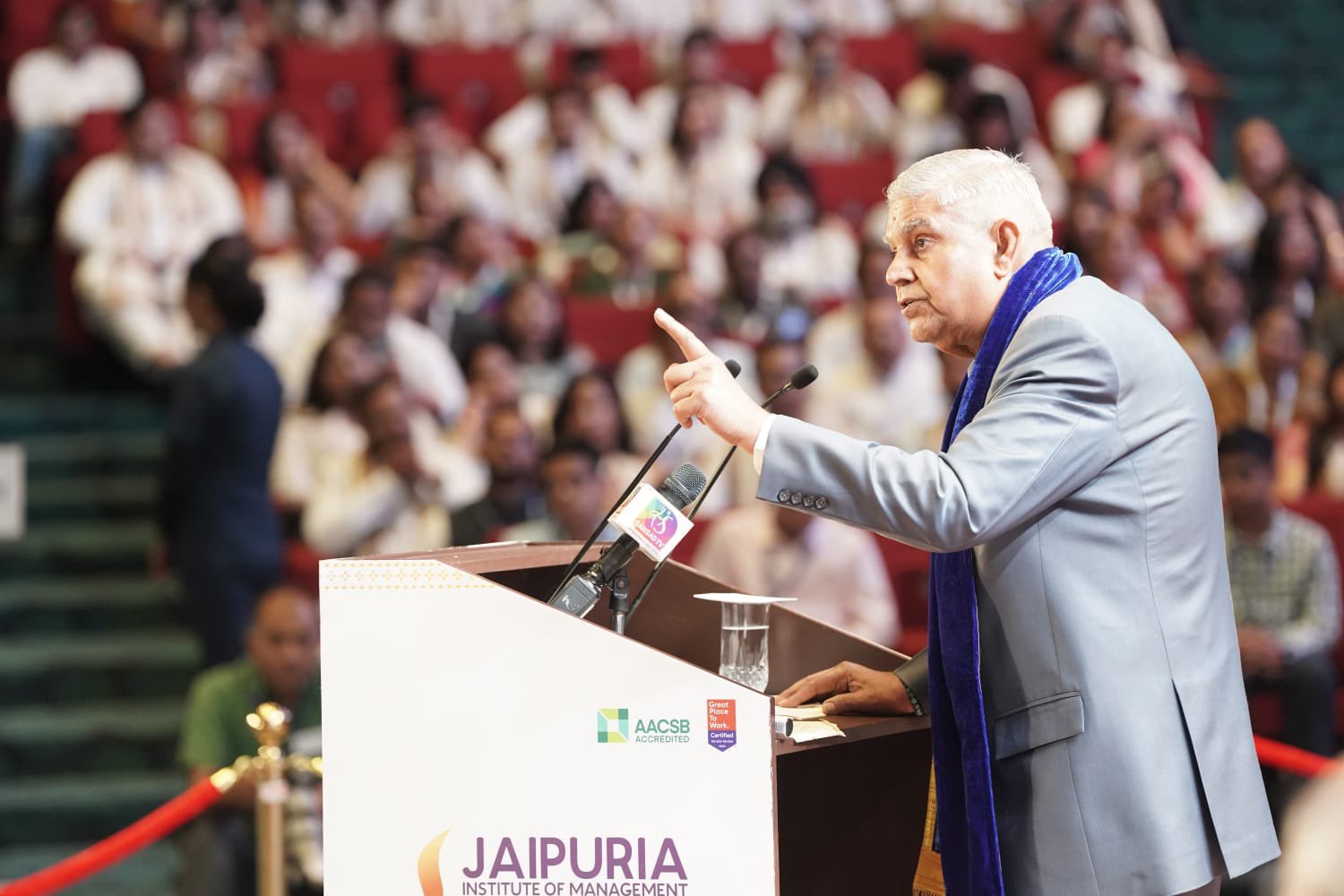Vice-President Jagdeep Dhankhar on Saturday called for a collective rethink on economic nationalism, urging citizens to refrain from supporting countries that act against India’s interests during times of crisis. Speaking at the annual convocation of Jaipuria Institute of Management at Bharat Mandapam, the Vice-President said the time has come to prioritise national interests in all spheres, including trade and travel.
“Can we afford to empower countries that are inimical to our interests?” he asked. “We no longer can afford, by travel or import, to improve the economies of those countries because of our participation. And those countries, in times of crisis, are positioned against us.”
Stressing the role of every citizen in national security, he said that industries, businesses, and educational institutions must work in tandem with the national vision. “Nation first—everything has to be reckoned on the fulcrum of deep commitment to nationalism,” he said, adding that such a mindset should be instilled from early childhood.
Lauding the ongoing Operation Sindoor, he paid tribute to the Indian Armed Forces and praised Prime Minister Narendra Modi’s leadership. Referring to the Pahalgam terror attack, which he termed the deadliest since the 2008 Mumbai attacks, Dhankhar said the operation was a decisive and dignified response.
“It was a remarkable retaliation befitting our ethos of peace and tranquility. The message from Bihar’s heartland has reached the world—and the world has acknowledged it. No one is asking for proof now,” he said.
The Vice-President also disclosed that Indian forces targeted terror bases across the border in Bahawalpur and Muridke, the headquarters of Jaish-e-Mohammed and Lashkar-e-Taiba, respectively. He described the strike as India’s deepest-ever cross-border counterterror operation.
He drew parallels with the United States’ 2011 operation against Osama bin Laden, suggesting that India’s response similarly signaled a strong message to the global community.
Reflecting on India’s civilisational values, he said the country stands apart for its 5,000-year-old ethos and called for bridging gaps between Eastern and Western perspectives. He cautioned against anti-national narratives and advocated careful scrutiny of foreign universities operating in India.
Dhankhar expressed concern over the growing commodification of education and healthcare, stressing that these sectors should not become avenues for profit but serve as means of giving back to society. “This country cannot afford the commercialisation of education,” he said.
Calling upon the corporate sector, the Vice-President urged industry leaders to prioritise funding for research and innovation through Corporate Social Responsibility (CSR) initiatives. “Investment in research is fundamental,” he said.
Dhankhar underlined the need for self-reliance in technology. “Gone are the days when we could wait for others to develop technology. If we do that, we are handicapped right from the beginning.”














